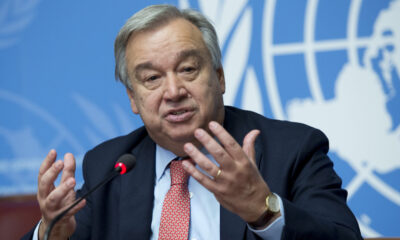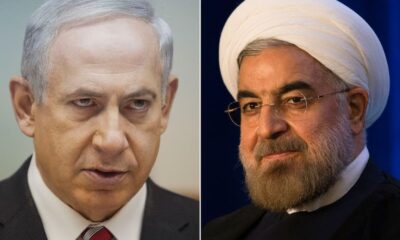EDITORIAL
Democracy, GDP Growth, Poverty, and Insecurity in Nigeria
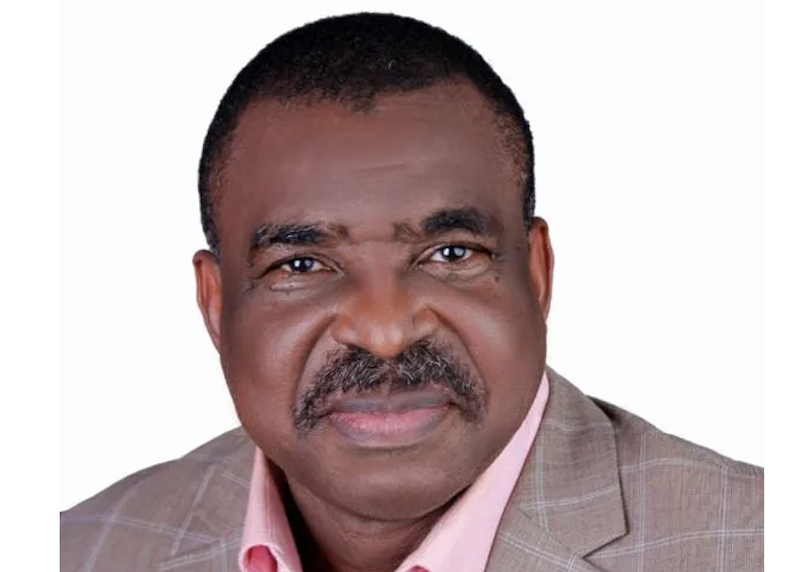
After twenty-six years of uninterrupted democratic governance in Nigeria (1999 to date), the masses had hoped to be enjoying the dividends of democracy by now—primarily through poverty alleviation and improved living standards. However, for a significant number of Nigerians, that dream has remained elusive. Rather than experiencing prosperity, many continue to grapple with poverty, hunger, and rising hardship.
This harsh reality persists despite the leadership efforts of five presidents since Nigeria’s return to democracy: Olusegun Obasanjo (1999–2007), the late Umaru Musa Yar’Adua (2007–2010), Goodluck Jonathan (2010–2015), Muhammadu Buhari (2015–2023), and Bola Ahmed Tinubu (2023–present).
Over these 26 years, Nigeria’s economy has witnessed both periods of remarkable growth and phases of stagnation. The nation’s Gross Domestic Product (GDP)—a key indicator of economic productivity—has seen notable fluctuations. For example, during Jonathan’s administration, GDP growth peaked at around 8%, largely driven by high global crude oil prices that exceeded $100 per barrel. In contrast, under the current Tinubu administration, GDP growth hovers around 3.4%, with oil prices now ranging between $65 and $80 per barrel.
Yet, despite these varying levels of economic performance, the expected transformation in the lives of average Nigerians has not materialized. The dividends of democracy remain out of reach for the majority, as poverty continues to define daily life for many.
This disconnect is further highlighted by data from a report commissioned by the Buhari administration. According to the 2022 Multidimensional Poverty Index (MPI), a staggering 63% of Nigerians—approximately 133 million people—were classified as multidimensionally poor before Tinubu’s presidency. This means a significant portion of the population suffers from deprivation not just in income, but across multiple areas including healthcare, education, living conditions, and access to work or protection from economic shocks.
In essence, despite positive macroeconomic indicators like GDP growth, the lived experience of most Nigerians tells a different story. This gap between economic statistics and street-level reality is a recurring dilemma in development economics—one that policymakers struggle to explain to populations undergoing structural reforms while still mired in daily hardship.
While government officials and economic advisers may celebrate rising GDP as evidence of progress, ordinary Nigerians are more concerned about their ability to afford food, pay rent, access medical care, and meet transportation costs. Today, with the naira severely devalued and denominations like ₦5, ₦10, and ₦20 effectively worthless, it’s difficult for citizens to believe in slogans like “Renewed Hope” when their basic needs remain unmet.
Many are overwhelmed by hunger and homelessness, with inflation making essential goods and services increasingly unaffordable. In such a context, official rhetoric about economic growth sounds abstract—if not completely alien—to the struggling masses.
This stark mismatch between government optimism and popular despair explains why many Nigerians feel disillusioned. After 26 years of democracy, they expected a nation on the path to prosperity. Instead, they are left questioning whether the system has truly worked for them.
The situation described above is the current reality for most Nigerians. This has compelled me to take a closer look at the disconnect between rising GDP figures and the persistent poverty experienced by citizens. Specifically, I aim to explore why economic growth—reflected in higher GDP—does not automatically translate into an improved standard of living or immediate poverty reduction.
This reality contradicts the assumptions held by many Nigerians who mistakenly believe that GDP growth will swiftly lead to poverty eradication. In truth, and largely unknown to the general public, poverty reduction requires the convergence of multiple factors working together in sync. Until these elements align harmoniously, the so-called dividends of democracy will not effectively reach the grassroots.
To put it simply, GDP tends to measure the concentration of wealth, typically in the hands of the elite. Unless that wealth is reinvested in productive ventures that generate employment and include the poor, poverty reduction remains elusive—more a dream than a measurable outcome.
Through this piece, I aim to clarify the often misunderstood relationship between GDP, poverty, and insecurity. Without a clear understanding of these links, ordinary Nigerians will continue to feel disconnected from government proclamations about economic progress, especially when those claims don’t align with their daily struggles.
For the average citizen, rising GDP means little if food remains unaffordable, transportation costs are unbearable, and basic needs like housing and healthcare are out of reach. Until the cost-of-living crisis eases and daily life becomes less punishing, many will continue to mockingly refer to President Tinubu as “T-Pain”—a nickname that emerged in response to the painful, short-term effects of his reform agenda.
Yet, it’s important to note that economic reforms take time. There is always a gestation period before policies yield tangible results. Because these reforms require a complex mix of socio-economic factors to align, public patience understandably wears thin, especially among those struggling to survive.
This article is my attempt to bridge the gap between policy architects and the masses. By using relatable examples, I hope to shed light on how economic development works, and why GDP growth doesn’t always equate to immediate poverty reduction.
Take, for example, the $20 billion Dangote Refinery in Lekki, Lagos. While this mega-project will undoubtedly boost Nigeria’s GDP, it does not directly create a large number of jobs for low-income earners, as it is capital-intensive and employs mainly high-skilled labor. In contrast, the ongoing construction of the 750-kilometer Lagos-Calabar coastal highway by Hitech Construction will have a more immediate impact on poverty reduction. Road construction tends to be labor-intensive and creates a wide array of job opportunities—from engineers and skilled technicians to informal workers, food vendors, and even homeowners renting rooms to laborers along the project corridor.
These examples illustrate a crucial point: economic growth and poverty alleviation are not always simultaneous or automatic. They often unfold in phases, depending on how different sectors interlink and how policies are implemented and sustained over time.
Ultimately, the lengthy implementation period of reforms often leads to public frustration, especially when politicians have raised expectations during campaigns with ambitious promises. Sadly, this pattern has become a recurring problem in Nigeria, and it is the root of the disillusionment currently gripping the nation.
When President Bola Tinubu returned to Lagos for the first time a few months after assuming office, it was expected to be a celebratory homecoming. However, the mood was quickly sobered when he was met by chants of “ebin kpa wa”—Yoruba for “we are hungry”—from frustrated Lagos youths.
This public outcry likely struck a chord with Tinubu, who, as a former governor of Lagos and a native son of the state, could not ignore such a message. In response, his administration swiftly removed import duties on food items to ease the skyrocketing cost of living, worsened by the elimination of subsidies on petrol and the naira. These decisions, although economically necessary, triggered a widespread cost-of-living crisis that continues to burden millions of Nigerians.
Adding to the crisis is the escalating insecurity in rural areas, where farmers are unable to work their land due to fear of attacks—resulting in declining food production and worsening scarcity.
During his most recent 10-day visit to Lagos to celebrate Sallah, President Tinubu, now midway through his term, acknowledged that food prices remain high and that many citizens are suffering economic hardship. To his credit, he did not attempt to downplay the challenges Nigerians face. He reminded the public that he inherited a nation in financial distress, and that the reforms he introduced—though painful—were necessary to stabilize the country.
There are valid arguments suggesting that, without these reforms, Nigeria could have spiraled into a crisis akin to Venezuela’s—a fellow oil-rich nation plagued by economic collapse, a classic case of the “resource curse.” Tinubu’s government has sought to reverse decades of flawed policies—such as fuel, currency, and electricity subsidies—that were originally introduced as temporary solutions but eventually became entrenched, contributing to Nigeria’s long-term underdevelopment over its nearly 65 years of independence.
In his Democracy Day speech on June 12, Tinubu reaffirmed his identity as a progressive by honoring 66 of his fellow democracy activists with national awards—individuals who fought alongside him for the restoration of civilian rule after years of military dictatorship. He also admitted that Nigeria has not yet become the prosperous nation its people hope for, but assured citizens that relief is on the way through new programs and projects aimed at addressing their struggles.
Yet, as the saying goes, “talk is cheap.” For many Nigerians, government rhetoric—amplified since May 29 through widespread media campaigns showcasing the administration’s midterm achievements—rings hollow. A significant gap remains between official claims of progress and the harsh realities felt by ordinary citizens across the country.
This disconnect between rising GDP figures and deepening poverty is not unique to Nigeria; it’s a global challenge. Economists have long debated why economic growth doesn’t automatically reduce poverty. Several theories attempt to explain this:
1. Kuznets Curve: Proposed by Simon Kuznets, this theory suggests that as economies grow, inequality initially rises but eventually falls once a certain level of development is reached.
2. Trickle-Down Economics: This theory argues that wealth generated at the top eventually benefits the lower classes. However, critics argue that this process is often slow, incomplete, or entirely ineffective.
3. Unequal Exchange Theory: This concept highlights how developing countries often engage in trade relationships that favor developed nations, leading to persistent poverty and inequality at home.
4. Dependency Theory: It suggests that developing nations are structurally dependent on developed countries, which keeps them locked in cycles of poverty and underdevelopment.
The gap between GDP growth and actual improvements in people’s lives is due to complex and often overlooked factors. To make this clearer, I drew an analogy between two major projects: the Dangote Refinery and the Lagos-Calabar Coastal Highway by Hitech Construction. While the refinery significantly boosts Nigeria’s GDP through high-value industrial output, it creates relatively few jobs for low-income earners. On the other hand, the highway project—though smaller in GDP impact—generates widespread employment for engineers, laborers, vendors, and local landlords, offering more direct poverty relief.
This comparison helps illustrate the subtle but crucial difference between economic growth and equitable development—something policymakers must keep in mind when designing reforms intended to benefit all Nigerians, not just a privileged few.
1. Income Inequality
GDP growth doesn’t automatically result in fair wealth distribution. Often, the benefits are concentrated among a privileged few, leaving the wider population with limited access to opportunities and resources. A prime example is the $20 billion Dangote Refinery—while it boosts GDP, it risks deepening income inequality unless the benefits are widely shared.
2. Poverty and Unemployment
Economic growth does not guarantee lower poverty or unemployment rates, particularly when it is driven by capital-intensive sectors that create few jobs. Projects like the Dangote Refinery and the $5 billion Bonga offshore oil field investment exemplify such growth—they contribute significantly to GDP but generate limited employment for the general population.
3. Inflation and Rising Cost of Living
While GDP growth can be a positive indicator, it often comes with inflation that erodes purchasing power. When the cost of goods and services rises faster than wages, the majority of citizens feel no tangible improvement in their lives. This is the current Nigerian experience: despite monetary tightening policies from the Central Bank, inflation continues to impoverish the masses.
4. Inadequate Social Services and Infrastructure
Growth in GDP does not always reflect improvements in public services such as education, healthcare, or infrastructure. Unless economic gains are reinvested into these sectors, the benefits may not reach the broader population. That said, both government and philanthropic efforts—led by figures like Tony Elumelu, Aliko Dangote, and Mike Adenuga—along with investments in railway and road infrastructure, are helping to close this gap.
5. Corruption and Weak Governance
Poor governance and corruption can significantly undermine the advantages of economic growth. When the gains from GDP expansion are siphoned off by corrupt elites, the population sees little to no improvement in their lives. Unlike his predecessor, Muhammadu Buhari—who declared a war on corruption in 2015—President Tinubu has taken a quieter, action-oriented approach. Though he hasn’t made loud proclamations, Tinubu has shown commitment by removing corrupt officials, such as former Humanitarian Affairs Minister Dr. Betta Edu, when credible allegations emerged. His strategy leans more toward silent enforcement than public grandstanding.
These factors contribute to the persistent gap between GDP growth and improvements in the living standards of everyday Nigerians. Unless these issues are tackled through well-designed, mass-oriented policy implementation, economic growth will continue to feel distant and disconnected from the realities on the ground.
Interestingly, many of the root causes behind the gap between a rising GDP and worsening poverty—issues that also fuel insecurity and public discontent—are already being targeted by the Tinubu administration through various poverty reduction initiatives.
However, the government has struggled to effectively communicate its efforts. The absence of a clearly structured and consistently communicated policy framework has left many Nigerians unaware of what is being done. This communication failure has opened the door for critics to brand Tinubu’s administration as reactive and directionless. In reality, these reforms are gradually improving Nigeria’s economic fundamentals—a fact recognized by institutions like the IMF, World Bank, Fitch, Moody’s, and even The Financial Times of London. Yet, the absence of a compelling domestic narrative leaves many Nigerians unconvinced, even as the government celebrates these international endorsements.
In my assessment, the Tinubu administration has implemented several policies intended to ensure that GDP growth translates into real poverty reduction. These include:
A) Pro-Poor Growth Strategies
These are targeted policies aimed at reducing poverty and inequality, particularly through social welfare programs and human capital investments.
To this end, the administration established a dedicated Ministry of Humanitarian Affairs tasked with supporting vulnerable populations. One key initiative under this ministry is the Conditional Cash Transfer scheme.
Though the program initially faced criticism over the low stipend amount, President Tinubu responded by increasing the cash benefit from ₦25,000 to ₦75,000 for 15 million households, according to the National Social Safety Net Coordination Office.
 Job Creation and Youth Empowerment
Job Creation and Youth Empowerment
Efforts to reduce unemployment have focused on promoting entrepreneurship, job creation, and skills development.
Beyond the initiatives led by various state governors and their spouses, the Federal Ministry of Education recently launched the Technical and Vocational Education and Training (TVET) program. This program aims to equip Nigerian youth—especially internally displaced persons (IDPs) and other vulnerable groups—with practical skills in areas like digital coding, cloud computing, and data analytics. Participants are provided with seed capital and equipment to enable them to become self-employed and economically active.
Before this, private sector actors like the Tony Elumelu Foundation (TEF) had been pioneering similar youth empowerment initiatives across Africa. The federal government’s current program appears to be a scaled-up, national version of that successful private sector model.
C) Social Protection Programs
These initiatives act as a safety net for society’s most vulnerable, offering support in the form of subsidies, direct aid, and empowerment tools.
First Lady Senator Oluremi Tinubu has played a hands-on role by visiting various states—such as Rivers, Delta, Bayelsa, Enugu, and others—to distribute empowerment tools including medical equipment, grinding machines, and refrigerators. These programs cut across party lines and aim to uplift women and disadvantaged communities.
D) Human Capital Investment
A major part of reducing poverty lies in long-term investment in education, healthcare, and essential social services.
On the education front, high-caliber institutions like Charterhouse UK have established a branch in Lagos, signaling growing confidence in Nigeria’s private education sector. These developments are expected to reduce the outflow of foreign exchange spent on sending children abroad for secondary and tertiary education.
Further supporting this effort is the Nigerian Education Loan Fund (NELFUND), a key initiative under Tinubu’s administration. NELFUND enables access to tertiary education for nearly 300 million Nigerian students (likely referring to applicants or potential beneficiaries over time), encouraging more students to study locally rather than abroad and rejuvenating local universities in the process.
In the healthcare sector, the opening of high-quality medical institutions such as Evercare Hospital in Lagos—funded through venture capital—and the African Medical Centre of Excellence (AMCE) in Abuja—supported by the African Development Bank (AfDB)—marks a significant upgrade in local healthcare infrastructure.
These advancements are projected to significantly reduce the $1 billion annually lost to medical tourism. Much like the elimination of petrol and naira subsidies, which has saved billions and cut petrol imports by approximately 30 million liters annually, improved healthcare services at home are expected to curb the financial drain on foreign healthcare spending.
Although many of these projects are private-sector-led, they are no less vital. They contribute meaningfully to national productivity, improve the quality of life, and help align GDP growth with poverty reduction goals.
Understanding the Disconnect Between GDP Growth and Poverty Alleviation
Although Nigeria’s economy has experienced measurable growth, the benefits have not translated into improved living conditions for the majority. Several systemic factors help explain this gap:
• Wealth Concentration: When economic progress disproportionately benefits the wealthy few, poverty and inequality remain deeply entrenched.
• Growth Without Jobs: Economic expansion driven by industries that rely heavily on machinery and technology often fails to create jobs, especially for unskilled labor.
• Weak Social Safety Nets: In the absence of robust welfare programs, vulnerable populations are left exposed to economic volatility and hardship.
Tackling the Roots of Poverty and Inequality
Closing the gap between economic growth and real improvements in living standards requires targeted, inclusive interventions. Key areas of focus include:
• Quality Education and Skills Training: Boosting literacy and access to functional education is essential. Initiatives like the Helpers Social Development Foundation’s free schooling and sponsorship for students are vital in empowering young Nigerians.
• Empowering Women and Educating Girls: Fostering equal opportunities for women through education and economic initiatives not only uplifts families but positively shapes the next generation.
• Fighting Corruption: Transparent governance and stronger accountability frameworks are critical to ensure public funds serve their intended developmental purposes.
• Fairer Income Distribution: Adopting strategies that shift resources toward low- and middle-income earners can stimulate consumption, spur local industries, and generate employment.
• Infrastructure Development: Strategic investments in transportation, power supply, and digital infrastructure can connect markets, improve efficiency, and drive inclusive growth.
• Diversifying the Economy: Moving away from oil dependency by supporting agriculture, small businesses, and tech innovations will foster long-term stability and job creation.
• Affordable Healthcare: Strengthening the healthcare system reduces the economic strain of illness on families and enhances national productivity.
• Expanding Financial Access: Improving access to financial services—especially in rural areas—through digital banking and fintech tools enables broader economic participation.
• Strengthening Social Programs: Initiatives like conditional cash transfers, food support, and targeted subsidies must be scaled up to cushion the most vulnerable.
Practical Measures for Redistribution
Achieving a more equitable society demands well-structured redistribution mechanisms, including:
• Progressive Taxation: Tax systems where high earners contribute more can fund essential public services.
• Social Assistance: Direct support programs like unemployment benefits, food aid, and housing assistance offer immediate relief to low-income groups.
• Minimum Wage Enforcement: Guaranteeing fair wages helps lift working families out of poverty.
• Accessible Public Services: Investing in public healthcare and education provides critical upward mobility pathways for disadvantaged communities.
• Cash Transfers and Subsidies: Financial support through direct payments or subsidies for essentials like housing and energy helps bridge economic gaps.
• Tax Credits: Reducing tax burdens for low-income earners can improve household financial security.
• Affordable Housing Projects: Public housing schemes play a key role in combating urban poverty.
• Skills and Job Training: Government-led programs that teach vocational and digital skills increase employability and self-sufficiency.
Both federal and state governments have already established skill acquisition centers nationwide to support this agenda.
Additionally, the National Assembly is currently reviewing four tax reform bills, aimed at easing the pressure on low-income earners while expanding the government’s revenue base.
Closing the Trust and Communication Gap
While the administration has highlighted President Tinubu’s midterm achievements with pride, everyday Nigerians remain unconvinced. With inflation, unemployment, and insecurity still pressing, citizens see little evidence of improvement in their day-to-day lives.
As former Lagos governor Babatunde Fashola once framed it, the “stomach infrastructure”—the basic needs of food, shelter, and security—still feels out of reach for many.
To win public trust, the government must do more than promise reforms. It must deliver results—and communicate them clearly and honestly. Many of its initiatives remain disjointed and underdeveloped. What’s needed now is strategic execution, tangible progress, and a compelling narrative that assures Nigerians that better days are not just promised—they’re coming.
Of all the challenges that President Tinubu inherited from his predecessor, including rescuing the country from the brinks of bankruptcy as it was weighed down by foreign and local debts to the IMF, foreign banks and airlines, some of which have commendably been repaid, even as the, CBN has also recorded increase in FX balance in the national treasury
Similarly, the good news that state oil behemoth, NNPC has ramped up crude oil production to 1.8 million per day from a low production of about 1.2 million per day some two years ago, with a target of 2 million BPD is partly responsible for higher FX inflow into the CBN. That is cherry news, however, the economy is still not out of the woods, although it is effectively on the trajectory of recovery.
In the same vein, the erstwhile volatility in the naira exchange rates with foreign currencies and its scarcity that had been the bane of the Nigerian economy have been relatively stabilized to about N1,600/$1.
That is on top of the fact that FX has become readily available on demand which is quite unlike in the past when sourcing hard currencies was like a nightmare for manufacturers who need to import raw materials to keep their factories in operation. The failure to successfully source FX is the reason that some of them were forced to shut down operations and relocate from Nigeria to other climes particularly Ghana and other neighboring countries from where they were producing essential items and exporting to Nigeria further causing our country to lose income by exporting capital.
Thankfully the exodus of manufacturing firms is no longer the case. Rather those who fled are likely going to be returning soon as the business environment changes for the better.
By far the worst thorns in the flesh of most Nigerians in terms of impact are not the inflation rate which remains high but coming down to a little over 23% nor the price of petrol which is currently hovering around N800 per litre, down from N1,300, but not yet where it should be. Rather the challenges that have lingered like malignant tumors are (1)insecurity of lives and properties, and (2) the outrageous hike in electricity charges currently designated into band A to E without commensurate supply to consumers who see the ill-conceived development in the electricity supply system as a scam.
Although the human carnage arising from the constant murder of innocent people in the Kaduna and Borno states northern Nigeria has abated since president Tinubu mounted the saddle in Aso Rock villa, the alarming rate of vicious killings in the middle belt states of Benue and Nassarawa which have become the new epicenter of violent displacement of farmers by heavily armed bandits is worrisome and unacceptable, so it needs being addressed frontally by President Tinubu as he has affirmed in his statement following the murder of an estimated 200 people in Benue state over the last weekend.
Apparently, while President Tinubu has recorded significant progress in other segments of society as earlier catalogued, he appears to be confounded and overwhelmed by the alarming scourge of insecurity as evidenced by the escalation of killings in the past couple of years, especially in Benue and Plateau states.
The Benue state governor Hycinth Alia’s allegations that the killing of villagers in his state by heavily armed bandits who also burn the houses resulting in the villagers fleeing into the bushes while abandoning their homes and which is often followed by the arrival of herdsmen and their cattle should be investigated.
That would help determine if indeed the attacks have international dimensions/elements and the invasion and seizure of our lands to be occupied by foreigners which is the unfolding scenario, is not a very high security threat to the sovereignty of Nigeria since the Wagner group (Russian private military contractors for hire) and other foreign mercenaries are currently operating in neighboring countries like Niger Republic, Mali and Burkina Faso which have withdrawn their membership of ECOWAS -a regional organization serving the common interests of the nation that are located in the region.
In light of the above, it would appear as if instead of insecurity going down, it has been rising under President Tinubu’s watch.
That is not good optics for the incumbent administration. As such, tackling insecurity needs to be prioritized by President Tinubu. It is a promise that he has made for the umpteenth time but the talk has not been transformed into action.
So, l would like to suggest that in the same manner that President Tinubu has significantly tamed inflation, stabilized the naira and ended petrol pump price subsidy, insecurity that is making the Benue and Nassarawa states look like killing fields, metaphorically, should compel the president, commander- in- chief of the armed forces of Nigeria, Tinubu to dorn his thinking cap and figure out, an out-of- the -box way, how to guarantee the security of the lives and properties of the Nigerians living in Benue and Nassarawa states who have been under siege by vicious outlaws without protection the federal government which our compatriot in those targeted states are entitled.
Some of the options available to President Tinubu include defeating the bandits by dislodging them from our forests from where they launch the attacks and retreat to hide by ensuring that our law enforcement officers occupy the forests permanently and do not leave the forests fallow for the outlaws to re-occupy.
In this regard, the concept of forest guards earlier proposed should be activated without further delay. There is no doubt that insecurity in Nigeria needs to be de-escalated so that the other goals of the administration such as the reduction of food inflation due to the inability of rural dwellers to attend their farms. To protect them so that their fundamental human rights will not be continuously violated, they need to save themselves from the dastardly activities of bandits terrorizing our fellow countrymen and women in the hinterlands of the states that are reputed to be the breadbasket of Nigeria.
In my assessment, the reason, the villagers in north central Nigeria are being decimated wantonly by the bandits is that the criminal elements are armed with sophisticated weapons while the victims are unarmed.
Justified by the reality that the prevailing dire atmosphere of violence in Benue and Nasarawa states requires extraordinary measures to counteract, President Tinubu may need to take some extraordinary measures which should not be a declaration of emergency rule which would amount to killing democracy softly.
Unsurprisingly, some unusual actions are being recommended as a panacea to the high level of insecurity beingexperienced across the country, particularlyin north central Nigeria.
As if to create an atmosphere of balance of force, a former chief of Defense staff, Gen.T.Y Danjuma (rtd) had advised his people from Taraba state and environ who were at some point targets of the outlaws to arm themselves to protect themselves otherwise they will be killed continuously as the Nigerian government has proven incapable or unwilling to protect them from the marauders. In a similar vein, the Director-General of State Security Services, DS Mr Adeola Oluwatosin Ajayi also recommended the arming of people in vulnerable communities for self-protection.
The above recommendations are patently extreme as they contravene the 1999 constitution of Nigeria which provides that only members of the armed forces should bear sophisticated arms.
Apart from law enforcement officers, the statutes book permits issuing licenses to civilians only for hunting.
So, proposing that locals who are not members of the military or law enforcement agencies should bear arms must have been made due to the hopelessness and helplessness of the vulnerable communities by the high-ranking and well-respected former army chief of staff and the current chief security intelligence officer.
But are there no alternative measures that can be taken as a counteroffensive to the armed bandits wreaking havoc in our hinterlands?
My hunch is that if we engage in critical thinking there would be more viable solutions to the menace.
I recently came across a news report indicating that about 6,000 cadet police officers had just been recruited and commissioned.
In my view that is very minuscule.
To rein in insecurity in Nigeria, the authorities need a massive recruitment of law enforcement officers of at least 100,000 not 6,000 every year in the next five (5) years until the ogre of insecurity has been killed.
To achieve that objective of creating a surge in security personnel to repel the current wave of attacks by the outlaws, the option is to adopt the existing local vigilante groups into the special force, which most states and regional governments are falling back on for security in their respective states and regions.
Their members should constitute the core of the recruits as law enforcement personnel being proposed since they have already undergone preliminary training.
They can be easily transitioned into the state police which has been on the drawing board for the past 26 years since multi-party democracy returned in Nigeria in 1999. If the state police option is not viable they can be adopted into a community police system as an integral part of the existing structure.
It is on record that it is during the reign of President Olusegun Obasanjo (1999-2007) that the concept of state police was first mooted.
For swiftness in action, conditions or prerequisites for the recruitment of the vigilante personnel to be absorbed into the special forces should be lowered. And all the men/ women who exited the military or law enforcement agencies under extraordinary circumstances should be considered for recruitment into the force.
They should not be recruited into the traditional police force rather they should be designated as special police in the manner that SPY police which is essentially dedicated to guard duties in banks was formed and is currently being operated.
When insecurity ebbs in five years or thereabout, the special force can be disbanded with the option of the men/women engaged to be absorbed into the other law enforcement agencies after being retrained.
In conclusion, President Tinubu must declare zero tolerance for insecurity which is giving oxygen to all the socioeconomic and political challenges bedeviling our beloved nation.
By Magnus Onyibe
Magnus Onyibe, an entrepreneur, public policy analyst, author, democracy advocate, development strategist, an alumnus of the Fletcher School of Law and Diplomacy, Tufts University, Massachusetts, USA, a Commonwealth Institute scholar, and a former commissioner in the Delta State government, sent this piece from Lagos.
Discover more from Asiwaju Media
Subscribe to get the latest posts sent to your email.
-

 ENTERTAINMENT6 days ago
ENTERTAINMENT6 days ago“I’ve Recovered” – Godwin Nnadiekwe Gives Update on Health Status After Accident With Zubby Michael
-
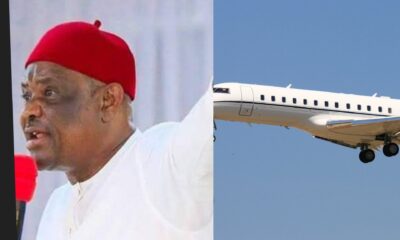
 NEWS6 days ago
NEWS6 days agoWike Confirms He Was Onboard Private Jet That Suffered Mid-Air Engine Failure
-

 ENTERTAINMENT7 days ago
ENTERTAINMENT7 days agoBurna Boy Acquires Ultra-Rare McLaren Senna Worth Over ₦3 Billion
-

 TECH6 days ago
TECH6 days agoMeta Plans to Invest $10 Billions in AI Startup
-
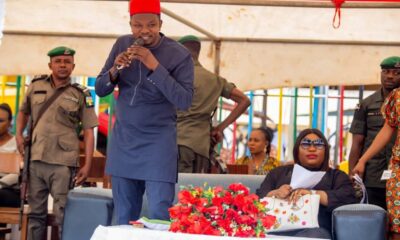
 NEWS5 days ago
NEWS5 days agoDemocracy Day: Nwali Calls for National Purpose, Lauds Ebonyi’s Growing Influence
-

 JOBS/SCHOLARSHIPS7 days ago
JOBS/SCHOLARSHIPS7 days agoHow to Apply for Federal Ministry of Education Technical and Vocational Education and Training ( FME TVET) – Step by Step Guide
-

 ENTERTAINMENT2 days ago
ENTERTAINMENT2 days agoRyan Taylor Claps Back At Fan Who Compared His Daughter To Ex-Fiancée DJ Cuppy
-
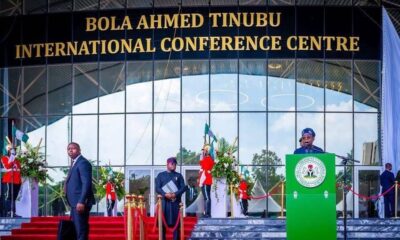
 NEWS7 days ago
NEWS7 days agoWike Renames Abuja International Conference Centre After President Tinubu
-

 ENTERTAINMENT6 days ago
ENTERTAINMENT6 days agoDavido Acquires 2026 Mercedes-Maybach SL 680 Monogram Edition
-
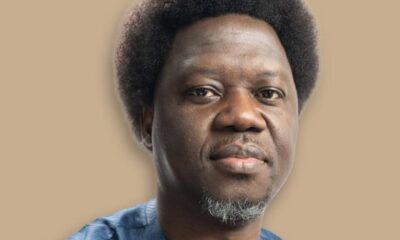
 NEWS5 days ago
NEWS5 days agoUS-Based Nigerian Archaeologist Abidemi Babalola Wins $300K Dan David Prize for Groundbreaking Work on Ancient Glass Beads
-

 ENTERTAINMENT6 days ago
ENTERTAINMENT6 days agoOil Money Exposes Shocking Allegations Against Angela Okorie on Instagram
-

 NEWS5 days ago
NEWS5 days agoLone Survivor Pulled From Wreckage of Ahmedabad Plane Crash That Killed Over 200

